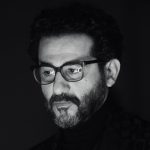The Arab HDTV Group, an independent entity founded by some key broadcast players in the Middle East, held its fourth annual meeting in Dubai this year after CABSAT. BroadcastPro ME brings you the details High Definition (HD) becoming increasingly significant in the Arab world, some key decision makers in the Middle East gathered atogether to […]

The Arab HDTV Group, an independent entity founded by some key broadcast players in the Middle East, held its fourth annual meeting in Dubai this year after CABSAT. BroadcastPro ME brings you the details
High Definition (HD) becoming increasingly significant in the Arab world, some key decision makers in the Middle East gathered atogether to form the Arab HDTV Group around four years ago. Since then, the Group has met every year to discuss some of the key issues concerning HD and advocated the need to adopt a common HD standard for the greater good.
This year, fifty seven people from the industry came together for the meeting, which was held just after CABSAT in Dubai. Several key topics were discussed including HDTV production issues; new HD technologies and services from both manufacturers and satellite solution providers; the latest developments from MENOS, international and regional trends with regards to the new format, and where the group is headed. A key part of the meeting is also to democratically elect key players to the top tier roles in the Group.
Dr. Riyadh Najm, assistant deputy minister of Saudi Arabias Ministry of Culture & Information has steered the group so far as President and was re-elected to the same position again this year.
Arab HDTV Group includes stake holders of HDTV from across the region including broadcasters, satellite operators, manufacturers and international organisations and Unions. Its main objectives are to draw a roadmap for the introduction of HD in the region and give recommendations about standards to use, both for broadcasters and for reception by the viewer, Dr. Najm told BroadcastPro ME.
In previous meetings, the Group had agreed to adopt 720 Progressive scan for current projects with a migration path to 1080p, taking advantage of the wider availability of production equipment in this format. There was also an agreement that 3 Gbps network would be implemented internally for distribution to accommodate 1080p signal when migration takes place. DVB-S2 for satellite transmission and DVB-T2 for terrestrial transmission were also the agreed transmission formats.
This years session saw the Group call for more production in HD as well as periodic training programmes for technical and operations staff.
In addition, Hasan Sayed Hasan, head of intaj at twofour54 and Jean-Pierre Lacotte, chair of the France HD Forum were elected to be vice chairs to the Group.
Several other key people attended the meeting including former vice chairs Mohammed Al Marhouby, Director General of Engineering, Oman Radio and TV; and David Wood, Deputy Director European Broadcasting Union – Department of Technology & Development as well as representatives from the Arab States Broadcasting Union (ASBU), Arab National Radio and Television corporations, Arab national broadcasters, Arab TV channels and satellite players such as Arabsat, Nilesat, Yahsat and Noorsat.
The Arab HDTV Group will reconvene in Q1 2012.
2011 recommendations
* Content departments in Arab broadcasting organisations should work with the Arab HDTV Group to increase their awareness about the new format. Seminars should be held periodically to increase HD awareness.
* Arab broadcasters should begin producing programmes in HD in order to create a library of programmes in this format.
* Training in HD facilities for technical and programme staff should be held periodically.
* Joint meetings should be held between the Arab HD Group and the European HD Forum to enable greater cooperation between the entities.
* ASBUs Programme committee should discuss HDTV issues and dedicate at least half a day to discuss matters related to HD in production.
* The Groups members should encourage more representatives from the industry to attend the meeting so as to strengthen the adoption of HD in the region.
















































































